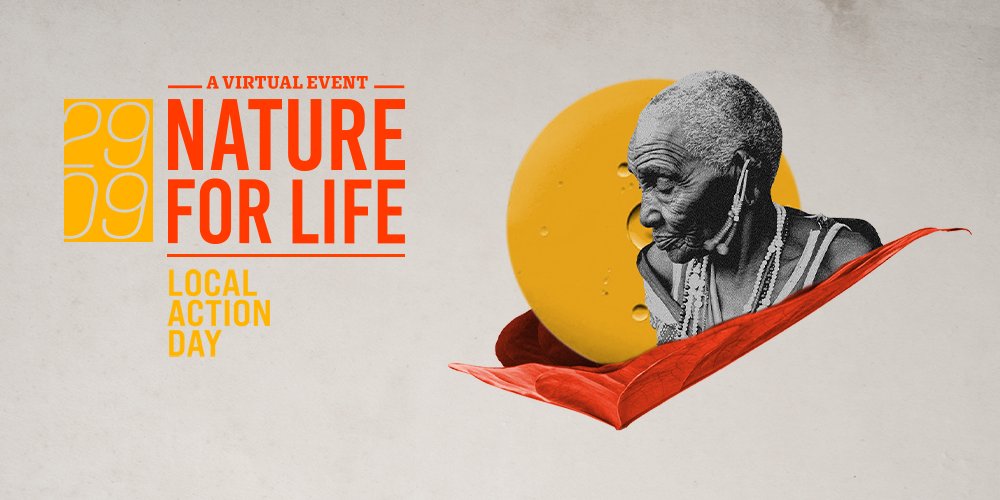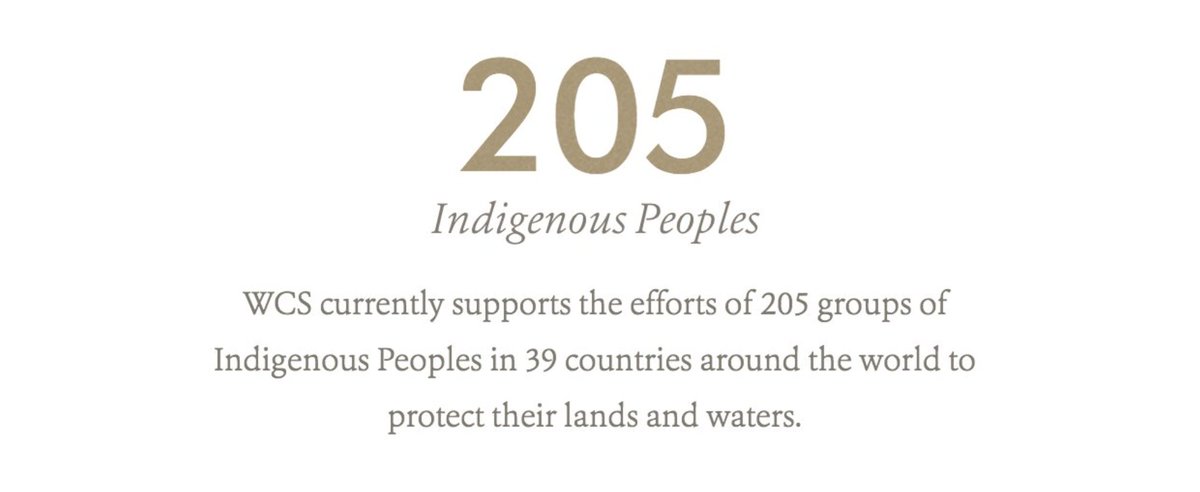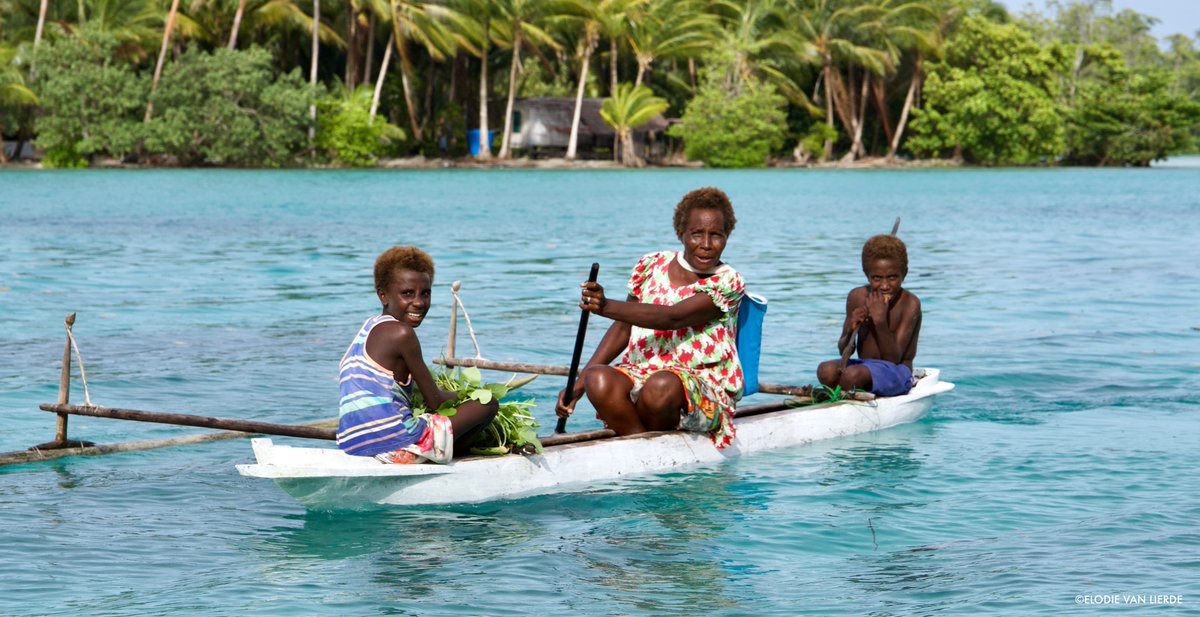COMMENTARY: If we are to minimize species loss and collapse in ecosystem function, we must do all we can to support Indigenous Peoples’ rights & their efforts to protect their lands & waters, write WCS’s David Wilkie, @sslieberman, & @cyclonewatson. 1/10
news.mongabay.com/2020/09/protec…
news.mongabay.com/2020/09/protec…
Why? Decisions Indigenous Peoples have made over generations have done more to protect species and ecological systems than all the protected areas established and managed by individual countries combined. bit.ly/2SbAIAq 

Today, it’s estimated that 36% of remaining intact forests lie within Indigenous Peoples lands. Further reason we are working with these groups today at #NatureForLife on #LocalAction and every day. wcs.org/nature-for-lif… #ForNature #ClimateChange 

In fact, Indigenous Peoples and local communities are our best partners and most important political constituency for conserving natural resources in the wild landscapes and seascapes where we work.
wcs.org/our-work/commu…
wcs.org/our-work/commu…
Today, #COVID19 poses a dual threat to Indigenous Peoples, including a growing risk governments & private sector attempt to abrogate their rights. bit.ly/2S9yxxo
As Gonzalo Oliver Terrazas, president of La Paz Indigenous People's Organization, told us previously.
As Gonzalo Oliver Terrazas, president of La Paz Indigenous People's Organization, told us previously.
WCS supports the efforts of 205 communities in 39 countries around the world to secure and exercise their legitimate rights to govern their hereditary lands and retain their cultural identities. Examples below. 

Africa:
-WCS helped 21 communities gain formal rights to manage their lands bordering Tanzania’s Ruaha National Park.
-WCS is supporting Efe, Lese, Mbuti, and Mbira peoples in exercising their territorial rights by establishing community forest concessions in Ituri region.
-WCS helped 21 communities gain formal rights to manage their lands bordering Tanzania’s Ruaha National Park.
-WCS is supporting Efe, Lese, Mbuti, and Mbira peoples in exercising their territorial rights by establishing community forest concessions in Ituri region.

Asia:
-WCS helped over 31,000 Indigenous People in Fiji, the Solomon Islands, and Papua New Guinea, assert their customary rights to decide the rules they will apply within their Locally-Managed Marine Areas.
-WCS helped over 31,000 Indigenous People in Fiji, the Solomon Islands, and Papua New Guinea, assert their customary rights to decide the rules they will apply within their Locally-Managed Marine Areas.

North America:
-In Canada, we’re supporting efforts of 11 First Nations and 3 Inuvialuit communities to exercise their constitutional rights through land-use planning, community-based research and monitoring, and the establishment of Indigenous Protected and Conserved Areas.
-In Canada, we’re supporting efforts of 11 First Nations and 3 Inuvialuit communities to exercise their constitutional rights through land-use planning, community-based research and monitoring, and the establishment of Indigenous Protected and Conserved Areas.
South America:
In the mid-1980s, we helped local communities establish first sustainable development reserves in Mamirauá and Amanã to protect the rights of traditional fishers and hunters. We have helped launch similar efforts across continent.
More: wcs.org/our-work/commu…
In the mid-1980s, we helped local communities establish first sustainable development reserves in Mamirauá and Amanã to protect the rights of traditional fishers and hunters. We have helped launch similar efforts across continent.
More: wcs.org/our-work/commu…

• • •
Missing some Tweet in this thread? You can try to
force a refresh














